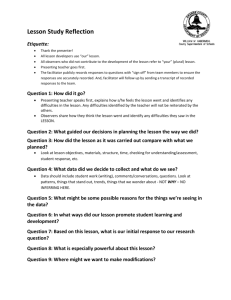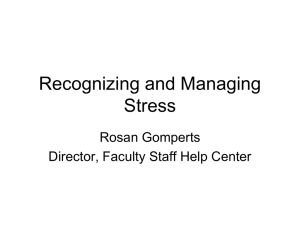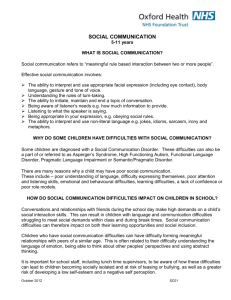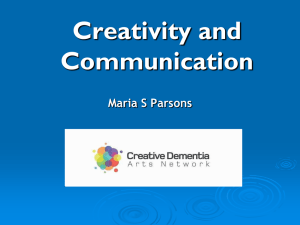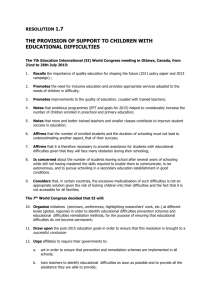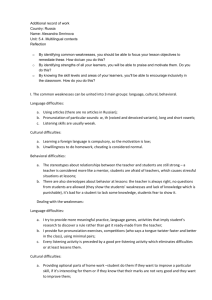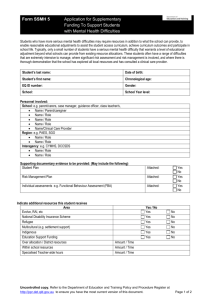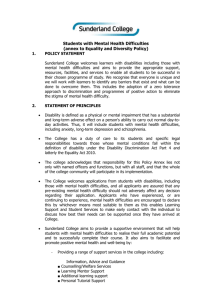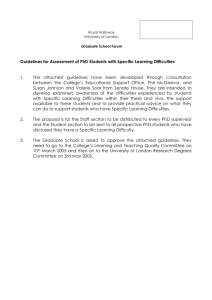Special Educational Needs Information for parents
advertisement
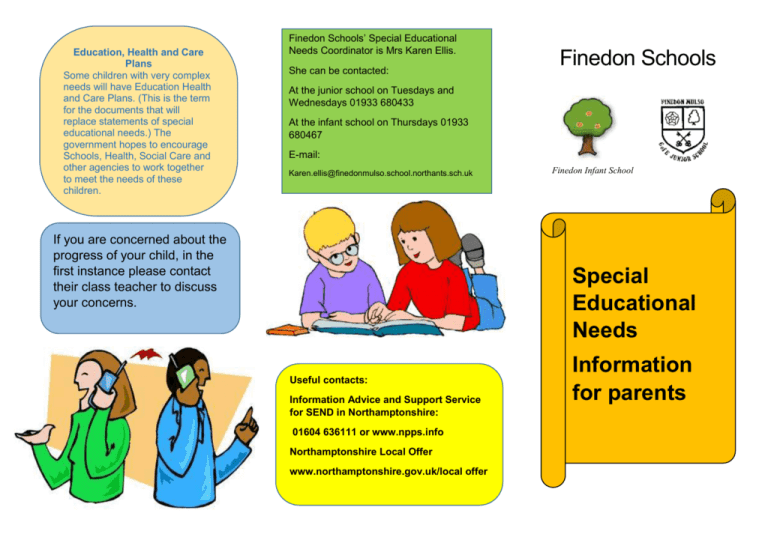
Education, Health and Care Plans Some children with very complex needs will have Education Health and Care Plans. (This is the term for the documents that will replace statements of special educational needs.) The government hopes to encourage Schools, Health, Social Care and other agencies to work together to meet the needs of these children. Finedon Schools’ Special Educational Needs Coordinator is Mrs Karen Ellis. She can be contacted: Finedon Schools At the junior school on Tuesdays and Wednesdays 01933 680433 At the infant school on Thursdays 01933 680467 E-mail: Karen.ellis@finedonmulso.school.northants.sch.uk If you are concerned about the progress of your child, in the first instance please contact their class teacher to discuss your concerns. Finedon Infant School Special Educational Needs Useful contacts: Information Advice and Support Service for SEND in Northamptonshire: 01604 636111 or www.npps.info Northamptonshire Local Offer www.northamptonshire.gov.uk/local offer Information for parents Communication and Interaction At the Finedon Schools, all children are encouraged and supported to reach their full potential whatever their ability or need. Our teachers regularly assess learning and plan and deliver lessons that take into account the range of abilities and skills of the children within their class. The majority of children consequently make good progress. However, some children don’t! If this happens then the class teacher will try different approaches, use additional resources and provide some extra support for the child within the classroom. The class teacher will talk to the parents and may also suggest that the child has hearing and / or eyesight checks. If a child continues to fall further behind despite the class teacher’s best efforts, further assessments may be undertaken to determine the cause(s). These assessments may take the form of classroom observations or tests. Sometimes these are carried out by school staff or an external professional. If these assessments identify a special educational need. Then extra provision will be made for the child. The Government’s definition of Special Educational Need in the SEN Code of Practice 2014 is: ‘A child has SEN if they have a learning difficulty or disability which calls for ‘special educational provision’ to be made for them and they have significantly greater difficulty in learning than the majority of others of the same age.’ Broad areas of special educational need are defined in the SEN Code of Practice 2014 as: Cognition and learning Support for learning difficulties may be required when children learn at a slower pace than their peers. Learning difficulties cover a wide range of needs, including moderate learning difficulties (MLD) and specific learning difficulties (SpLD), which may affect one or more specific aspects of learning. This encompasses a range of conditions such as dyslexia, dyscalculia and dyspraxia. Children with speech, language and communication needs (SLCN) have difficulty in communicating with others. Children with ASD, including Asperger’s Syndrome and Autism, are likely to have particular difficulties with social interaction. They may also experience difficulties with language, communication and imagination, which can impact on how they relate to others. This may be because they have difficulty saying what they want to, understanding what is being said to them or they do not understand or use social rules of communication. Social, emotional and mental health difficulties Children may experience a wide range of social and emotional difficulties which show themselves in many ways, such as becoming withdrawn or isolated, as well as displaying challenging, disruptive or disturbing behaviour. These behaviours may reflect underlying mental health difficulties such as anxiety or depression, self-harming, substance misuse, eating disorders or physical symptoms that are medically unexplained. Other children and young people may have disorders such as attention deficit disorder, attention deficit hyperactive disorder or attachment disorder.
